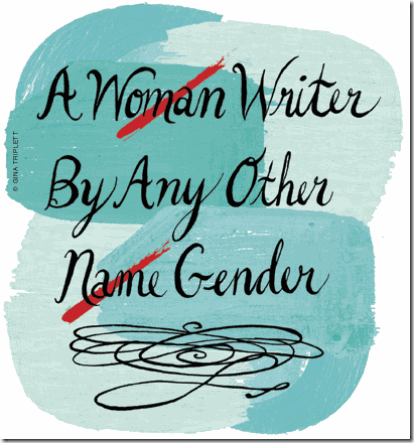This Woman’s Day, two of our writers argue about the glass ceiling in the publishing industry. Pick a side!
What’s in a Name? Plenty, says Janani Hariharan.
A lot, is what the publishing industry would say. Mary Ann Evans. Nelle Harper Lee. Amantine Dupin. A.M. Barnard. James Tiptree, Jr. J.D. Robb. Currer, Ellis and Acton Bell. Do any of these names strike a chord with you? No? What?! These are some of the most famous writers and poets of the past century or so. Let’s try again. George Eliot. Harper Lee. George Sand. Louisa May Alcott. Alice Sheldon. Nora Roberts. Charlotte, Emily and Anne Bronte. Now? Yep, I thought so!
Taking on male pseudonyms is no new trend in the world of literature. In the Victorian era, it was an established notion that works written by women would not be given serious attention by the public, and so authors would willingly take on gender neutral pen names to bring in the moolah. However, cut to the present day and we find that the Harry Potter series is being written by J.K. Rowling and not Joanne Rowling!
Is there something we’re missing here? Most of us talk about how times are changing, and Rahul Gandhi has said his bit about women empowerment. Yet, we find ourselves in a world where women have to hide their genders in order to ring in the registers. This is not to say that women authors are in any way unpopular with the public; JKR and Nora Roberts did not lose their fans once their identities were revealed. However, the very fact that these women and their publishers felt the need to take on a pseudonym is troubling – what does it say about us and our perception of good writing? Would we really reject a masterpiece if we were told that it was written by someone of the softer sex?
I think it’s really important to recognize such blatant biases, if and when they exist. We are in a truly sorry state if we cannot give credit where it is due, regardless of the creator’s identity.
Do contemporary readers really care about their author’s gender? Vanathi Parthsarathy doesn’t think so.
Gender bias in book publishing has been prevalent since the early book publishing era. But I strongly feel that in recent times, this is no longer true. Year after year, we have reports like these in New York times and Huffington Post where publishers are blamed for publishing more works of men than women. But is this really true?
Firstly, we cannot compare raw numbers because that would be biased. Comparing the ratio of total works published to total works received by gender would make a better sense. What would be even better would be to compare Quality works of men and women where the quality of a work would be a score that would be arrived at after each work is scored by an unbiased judge. Yes, we have more books of male authors published every year. But are the publishers to be blamed for that?
Many a times, the J.K. Rowling example has been brought up where the author had to shorten her name to maintain anonymity of her gender, as the publishers feared that boys would not read her books if they knew it was a female author. But I find these fears are rooted more to paranoia than the truth. Ultimately, Publishing is just another commercial business were the books are sold to cater people’s reading needs. So, isn’t it the readers and not the publishers, who ultimately influence a book’s sale? I believe that current readers do not let something as petty as the author’s gender influence our opinion of a book. Though this attitude did exist a long while ago, I feel that it has changed significantly since Victorian times and the fact that last year’s Booker nominations were 2:1 in favor of women is a standing testament to my belief.
What do you think about this name game? Chip in with your comments!
Janani Hariharan
Latest posts by Janani Hariharan (see all)
- The Best of RK Narayan - July 21, 2014
- Done with Men? Let’s see who else is… - June 20, 2014
- Writing on Sensitive Issues – Unbowed by Lestine - June 9, 2014

No Comments